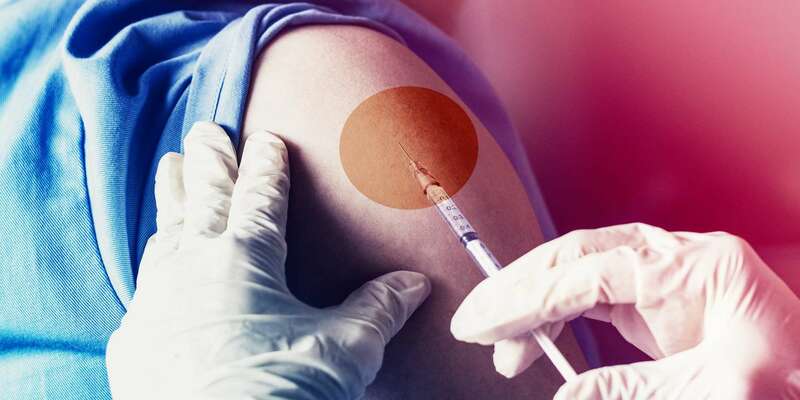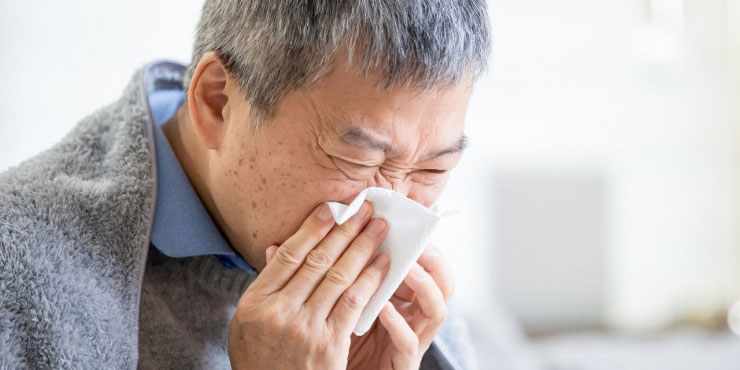What is the period of flu? It should be noted that the phrase 'period flu' is not a recognized medical term. According to Sidney Wu, practicing OB-GYN at Weill Northwestern Medicine in New York City, "premenstrual syndrome" is "a casual word that individuals use to characterize a number of the debilitating symptoms that were already grouped as components of premenstrual syndrome." alterations that arise other than during a woman's menstrual cycle. To rephrase, "period flu" appears to represent a portion of individuals' physical whooping cough symptoms during their menses. At the same time, "PMS" comprises physical and mental symptoms. "PMS happens during the granulosa cells following spermatogenesis, which is the interval depending on how quickly ovulation occurs although when menses begins," explains Juliet Nevins, physician OB-GYN or otherwise clinical innovations medical director with CVS Health throughout New York City.
What Exactly Is This Period Of Flu?
Since PMS is not a recognized medical disorder, no established diagnostic criteria exist. However, period flu may cause many PMS symptoms, including breast soreness, irritability, and exhaustion, according to Kelly Culwell, MD, a group of expert OB-GYN professional women's health specialists who spoke with Health. Joint pain, muscle pains, low-grade fever, nausea, nightmares, and dizziness are also prevalent, much as they are when someone has the true flu. Those signs and symptoms usually debut or shortly before the beginning of your menstruation. Ovulation happens around two weeks preceding menstrual bleeding, and you could have flu-like symptoms then. In most cases, symptoms disappear within just three days. Dr. Cross also noted that the symptoms of the period flu would lessen after the bleeding had slowed.
What Are The Roots Of Period Flu?

There's no one clear-cut reason for period flu. Dr. Cross said the medical community "doesn't 100% know" what's causing the mysterious set of symptoms. But the probable culprit? Circadian rhythm disturbances and other hormonal changes. Dr. Culwell said that PMS symptoms, such as the flu, are caused by a dramatic hormone decrease between ovulation and your period. While estrogen drops within that period, hormone-like substances called prostaglandins, rise. Prostaglandins are molecules that prompt the uterine muscle contractions, which causes epithelial tissue that connects the two the endometrial lining (called this same endometrium) to dissolve during monthly flow and creates agonizing cramps. "Prostaglandins may also cause abdominal pains and diarrhea," Dr. Culwell said. The "stomach flu," a common phrase for norovirus that is not a medical diagnosis, may be similar to the symptoms some women experience during their periods.
How To Treat Period Flu
Period flu may be beaten, or at least the intensity of its symptoms can be mitigated with the aid of various accessible treatments. And under nonsteroidal anti-inflammatory drugs (NSAIDs), such as Advil and otherwise Motrin (ibuprofen) but instead Aleve (naproxen) (naproxen). Recent research published in the Eurasian Proceedings of The national academy suggests that NSAIDs may also reduce levels of prostaglandins in the body. Dr. Cross also said that making positive lifestyle changes might help. Some include increasing one's water intake and physical activity, choosing meals high in nutrients such as whole grains and veggies, and obtaining sufficient rest. Consider placing a heating pad on your stomach or any other aching area for further pain relief. " Dr. Culwell said, "Rest, water, pain medicines, and anti-inflammatory drugs, including Tylenol or steroidal anti-inflammatory drugs, will generally help manage the symptoms," Dr. Culwell said.
How To Stay Away From Period Flu

Similar to lifestyle adjustments that help relieve bothersome symptoms, individuals can take action to avoid period flu. These alterations to one's way of life include, following the Johns Medical Medicine Healthcare Library:
- Putting on weight increases your consumption of protein and minimizes your intake of sugar instead caffeine
- Supplementing with B vitamins, calcium, and magnesium
- Regular exercise
Conclusion
"Period flu" is neither an established medical word nor the conventional "flu," the infectious respiratory infection that affects hard in the autumn and winter. However, the term is well chosen for those who have period flu throughout the days leading up to their period. This is because the symptoms often mimic those of the flu. Or you may have flu-like symptoms, such as a headache, a high temperature, stomach pain, and extreme weariness. Dr. Cross says that, like premenstrual syndrome (PMS), period flu always occurs around the same time of the month: between ovulation and the beginning of your period. Even period flu is considered PMS by some doctors. This article will discuss the signs, causes, and remedies for the period of flu.




